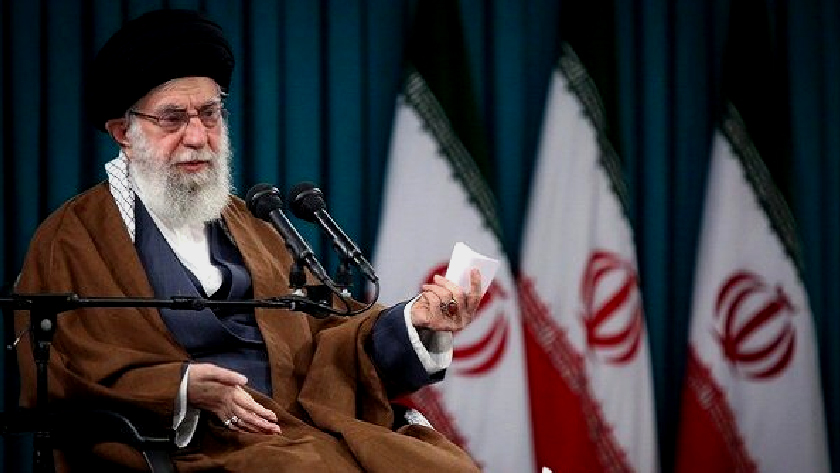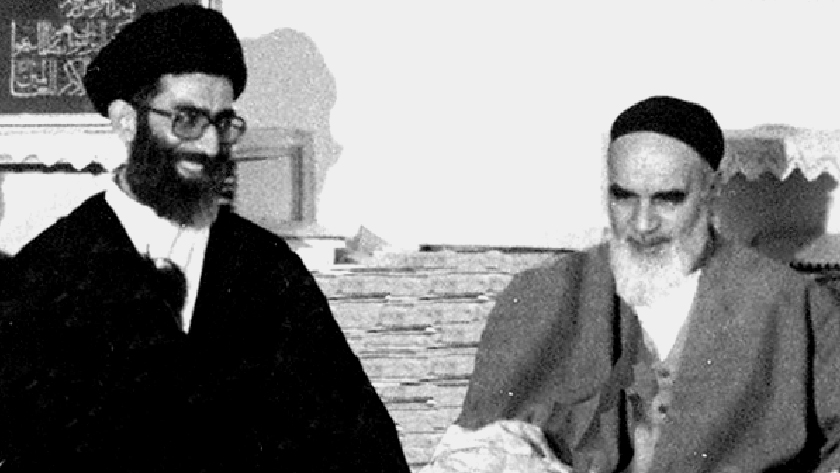Iran Press/ Iran news: During the 33-year leadership of Ayatollah Seyyed Ali Khamenei, various incidents took place in the country. The Leader's management style was the critical factor in overcoming the problems.
The pivot of the enemies of Iran was the elimination of the leadership of the Islamic Revolution, making the system withdraw from its principle stances. Still, Ayatollah Khamenei's Resistance against the pressures from inside and outside left the very efforts futile.
Emphasis on national unity
One of the factors of the Leader's management was his emphasis on national unity. The enemies use any opportunity to cast aspersion among the Iranians exploiting political, religious, and ethnic varieties. Ayatollah Khamenei knows the aggressive strategy; hence he has always stressed the preservation of unity as the significant factor in passing through the crises.
Still, the power to mobilize the society to contain the crises is of the other characteristics of the Islamic Revolution's Leader. Ayatollah Khamenei has always stressed the widespread support for the Islamic Revolution and used it to show the power of Iran to the world.
War and military invasion are considered tools serving the world's arrogant powers' expansionist policies; thus, any country that does not want to be invaded and occupied must be able to withstand the attacks of enemies to maintain its independence and identity.
Shor-up of the country's deterrent power was elevated during the past 33 years thanks to the emphasis of lmam Khamenei. From the beginning of its establishment, the Islamic Revolution has faced various plots among them; military invasion has always been on the enemies' table, a clear example of which was the 8-year imposed war of the US-backed Ba'athist regime Saddam on Iran.
Related News:
Ayatollah Khamenei: Iran's Islamic Revolution is the most significant in the history of revolutions
Given the challenge, it is essential to organize a powerful armed force enjoying the maximum capability to resist all kinds of hostilities. Today the defense power of the Islamic Republic has reached a point that no country dares to invade it, although the enemy says "all options are on the table."
The Leader of the Islamic Revolution says: "If that day (at the beginning days of the Revolution) the West challenge was to prevent purchasing arms for Iran, today is challenging with Iran's transfer of advanced weapons to the Resistance Front forces."

Emphasis on an increase of strategic depth in the region, another feature of the Leader's management, is observed in the rise in the strategic depth of the Islamic Republic of Iran. Turning into a role model for the region's nations and giving identity to them, the Islamic Revolution paved the way for an increase in Iran's strategic depth.
The Resistance,e Axis, which is a fruit of the Islamic Revolution to confrontation's enemies, is witnessing the propagation of the actors following the role model and gets dynamic to maintain the order in the west Asian area. The issue, in turn, acted as an element contributing to the security of Iran and boosted the situation of the country in the region.
The Leader of the Islamic Revolution says: "A nation's reliance pint subjects to its strategic depth; the enemies do not like the Iranian nation and the Islamic Republic to enjoy the support and advocacy of other countries - which is, of course, unique; the connection is unpleasant to the enemies. The Islamic Republic must consider preserving the strategic depth as its own duty." The presence of Iran in Syria and Iraq and its fight against terrorists there is indicative of the Islamic Republic's strategic depth.
Avoiding unnecessary conflicts even though during the past 33 years, numerous wars were waged around Iran, the country never got involved in any of the battles. The first Persian Gulf war, the war on Afghanistan and Iraq in 2001 and 2003, post-2011 developments in the Arab world, and the hostile behaviors of the Israeli regimes were among the causes that tended to bring about security consequences for Iran, yet thanks to the wisdom of Ayatollah Khamenei the country did enter no war.

After the Ba'athist regime of Saddam attacked Kuwait, the US had the opportunity to launch a great war, First Persian Gulf War. Meanwhile, differences emerged among the Iranian authorities; some forgot about Saddam's extortionate crimes against the Iranian nation and his warmongering in the region, considering the engagement in the war against Kuwait a must.
Some even considered the US war on Iraq as a crusade war against the Muslims and called on assisting Saddam. Yet, the Leader of the Islamic Revolution made the aware: "They [the US and Saddam] are two camps and parties who are fighting each other for the sake of wrong and non-divine purposes; The Islamic Republic rejects both of them because the two sides' motivations are material and that is why they are in conflict with each other. It is not the case that one side is divine and the other is material. It is not a war between Islam and infidelity."
The same approach by Ayatollah Khamenei was also taken to the US war on Afghanistan in 2001. When the Taliban regained power in 2020, or the border conflicts between Armenia and Azerbaijan, Iran never got involUndoubtedly doubt, today's security and stability of the Islamic Republic of Iran are owed to a significant part to the management style of the Leader of the Islamic Revolution Ayatollah Seyyed Ali Khamenei.
206
Read More:
Leader: World on the brink of a new order
Leader: Issues can be solved with struggle, devotion
Mojtaba Darabi

